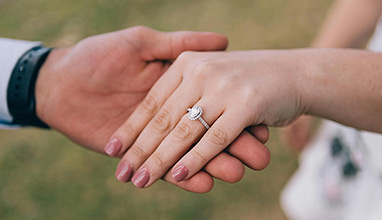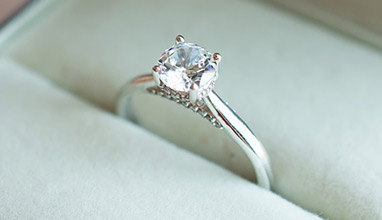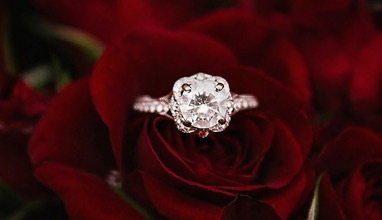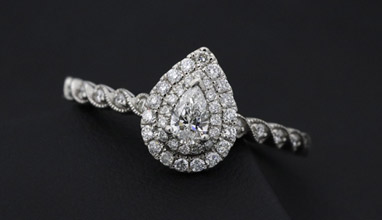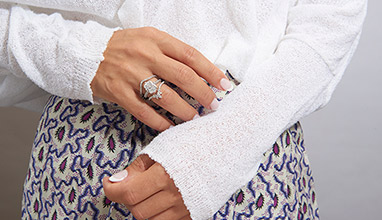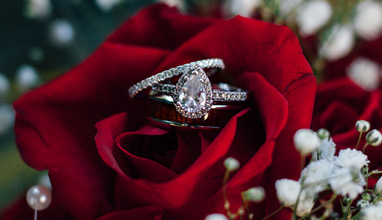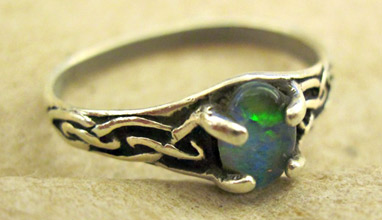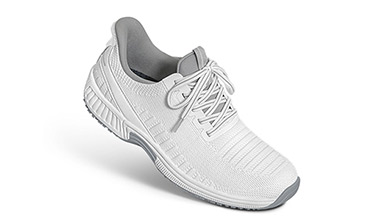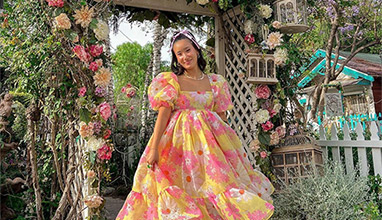Why Is Ethical Ring a Unique Engagement Ring?
Ethical Engagement Ring Overview
An ethical engagement ring is manufactured with fair labor and materials sourced ethically. Unfortunately, the diamond industry is riddled with corruption and employs harsh working conditions, including forced labor and child labor. When we talk about choosing the perfect engagement ring, human rights and environmental considerations must be top of mind. Diamond extraction has a history of violence, and precious metal mining frequently causes considerable environmental damage. Miners are frequently denied livable pay and adequate health and safety standards. Choosing an ethical engagement ring is essential if you are a socially conscious couple concerned with sustainability and decent working conditions. An ethically sourced engagement ring is a priority for socially aware couples, and happily, there are a variety of exquisite and cheap options.
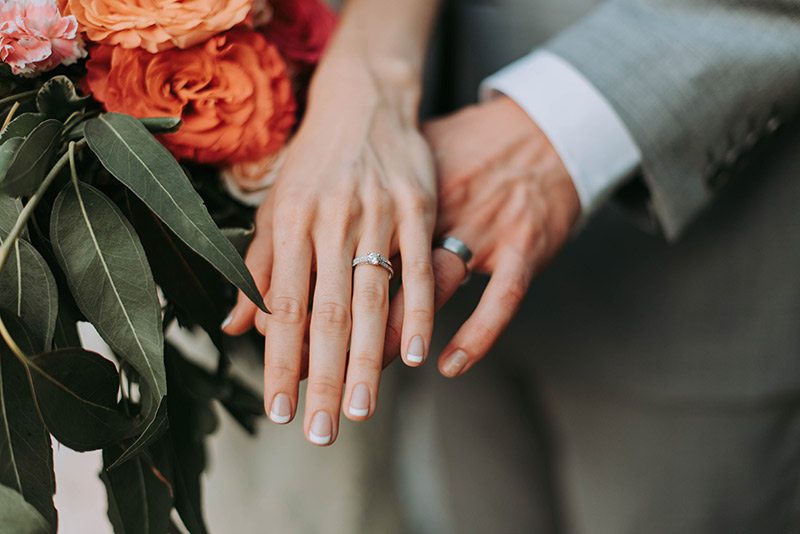
Choosing ETHICAL diamonds
Diamonds are traditionally extracted at massive mining operations all over the world. The diamond rough is then moved to another region of the world to be cut and polished before being sent back across the world to be brokered, photographed, and sold. A typical diamond's path to market might be as follows: mined in South Africa, cut in Mumbai, India, sent to diamond district Antwerp, Belgium, dispersed globally again to be sold to jewelers and set in jewelry. The carbon emissions from excessive worldwide trade are one of the concerns that may be identified with this supply chain. Furthermore, because there are so many layers and everyone wants a piece of the action, people at the start of the chain of supply are frequently the most vulnerable to abuse and slavery circumstances. Diamond traceability is challenging, as previously stated, due to vast established supply networks. That is, the individual from whom you purchase your stones will have difficulty informing you where they were mined and who cut them. For many years, the Kimberly procedure has been used to certify diamonds as "conflict-free," and it is extensively employed for most diamond sourcing.
Rustic Diamonds
Rustic diamonds, also known as salt and pepper diamonds, are strongly incorporated with needles, crystals, carbon, or clouds and can be found in strange off-white colors such as grey, browns, or champagne. These raw alternatives are a stunning and completely one-of-a-kind alternative to the ideal "4 Cs" diamonds.
Less-than-perfect diamonds are generally missed and thrown since current tastes would never accept them as precious or attractive, let alone worthy of an engagement ring. Rustic diamonds have exploded in popularity in recent years, with individuals looking for a gemstone that honors imperfection and nature's beauty.
Rustic diamonds are also available in incredible creative shapes, such as hexagons, bullets, kites, and rose cuts, offering up a whole new universe of design possibilities. These unconventionally cut diamonds are anything but average and will undoubtedly form an eye-catching engagement ring!
Rustic diamonds are helping to dilute flawless diamond demand, making the industry less wasteful and putting less strain on the supply chain's bottom.
Vintage and Recycled Diamonds
Recycled or vintage diamonds are an excellent choice for an ethical and unique engagement ring. While they do not completely alleviate the modern diamond mining dilemma, they do provide a more affordable price point and the ability to resurrect rescued stones.
Vintage diamonds can also be an unusual choice for your engagement ring, especially if you enjoy hunting. There are many gorgeous antique cuts with a lot of personalities, such as old mine and Asscher.
Lab Grown Diamonds
Lab diamonds are diamonds that have been created in a laboratory under extreme heat and pressure. They are indistinguishable from naturally produced diamonds because they have a similar chemical structure. Lab diamonds are becoming more popular as an ethical and environmentally friendly option for engagement rings. They are an ethical alternative because the labs are often located in nations that protect workers, but they are not an environmentally beneficial option. Diamonds require enormous quantities of energy and resources to develop, making their large carbon impact undesirable. Consider adding a carbon offset investment to your lab-grown diamond purchase to make it a well-rounded, responsible choice.
Choosing Eco-Friendly Metal
Metal, maybe the most basic ingredient of unique engagement rings, is the glue that holds the magic together. There are several sustainable metal possibilities available for you to choose from. Fairtrade and Fairmined certificates are only given to artisanal and small-scale mining (ASM) operations that have demonstrated adherence to a set of best practices. In other words, Fairtrade Gold and Fairmined Ecological Gold are mined under safe working circumstances by miners who are given a fair wage and have the chance to trade their gold on a global scale.
Environmental sustainability is considered (especially in the case of Fairmined Ecological Gold, which is mined without the use of any hazardous chemicals), and additional funds are offered for community projects. Fairtrade Gold and Fairmined Ecological Gold, as newly mined metals, do not have the environmental 'neutrality' of recovered metals, but the socioeconomic benefits of the Fairtrade and Fairmined programs are numerous. If the idea of supporting miners, their families, and communities appeal to you, a certified ASM gold, like Fairtrade Gold or Fairmined Ecological Gold, would be an excellent choice for your ethical engagement ring. Recycled metals, on the other hand, eliminate the need for additional mining by utilizing material that is already above ground. If lowering your carbon footprint is your main priority, selecting 100% recycled gold or platinum is wise.
Designed by indie designers
Alternative engagement ring designs by indie designers will put less strain on people and the environment. Avoiding big box stores and cookie cutter designs will help the jewelry industry balance supply chains and, as a result, worker treatment. When supply increases dramatically, say for a flawless diamond ring type, it becomes troublesome, allowing unethical methods to sneak into the operations.
In layman's words, an ethical engagement ring is made with minimum environmental impact and no breaches of human rights. Even better if its existence has benefited the communities that helped bring it to fruition in some way.
It is not impossible to find an ethical engagement ring. It will, however, need some effort. Always read any report that comes with a stone carefully and ask questions. A respected bespoke jeweler is your best chance for an ethical engagement ring. Working with a jeweler you can trust is essential for such a personal purchase.
Hits: 4677 | Leave a comment



